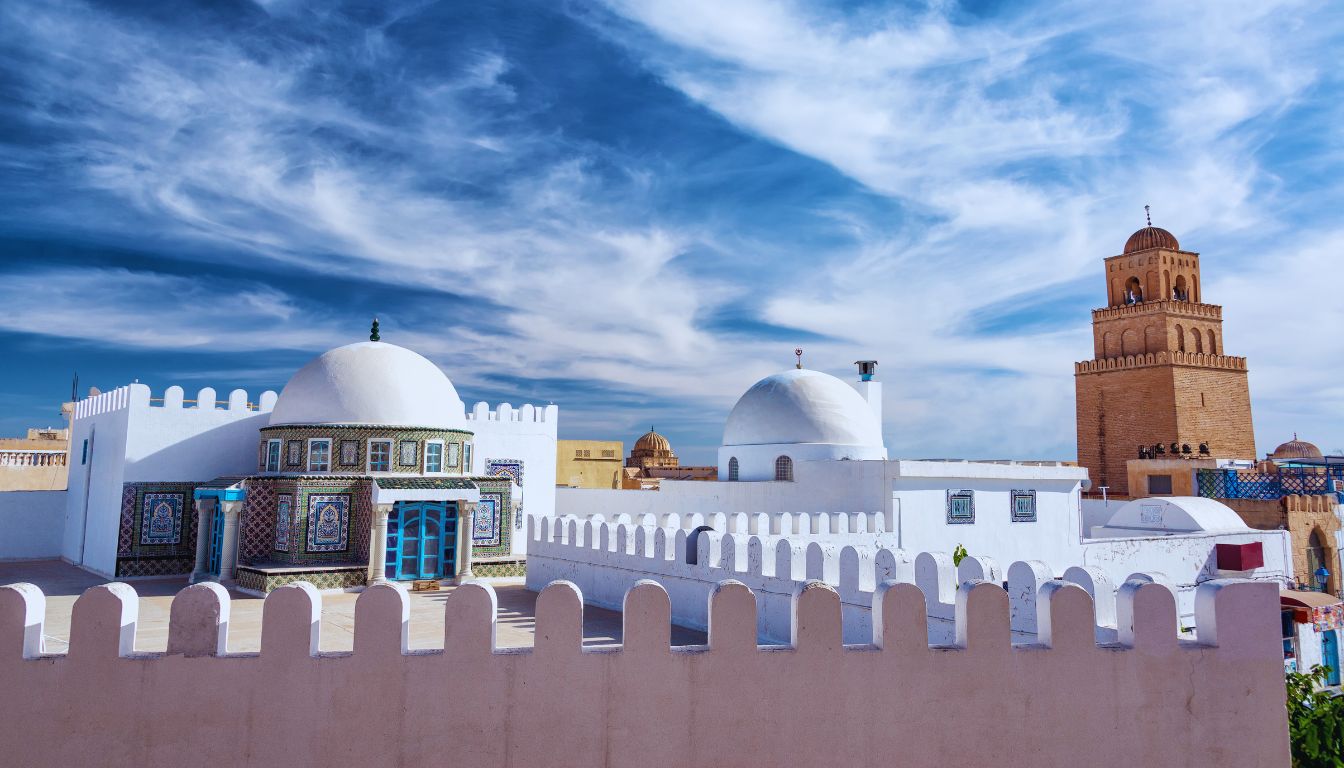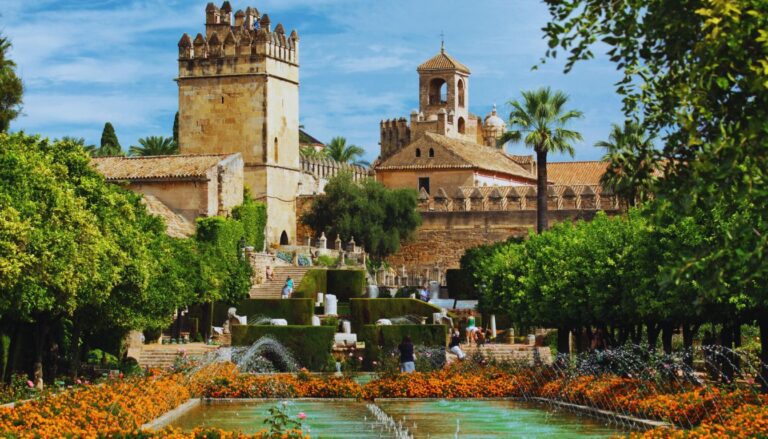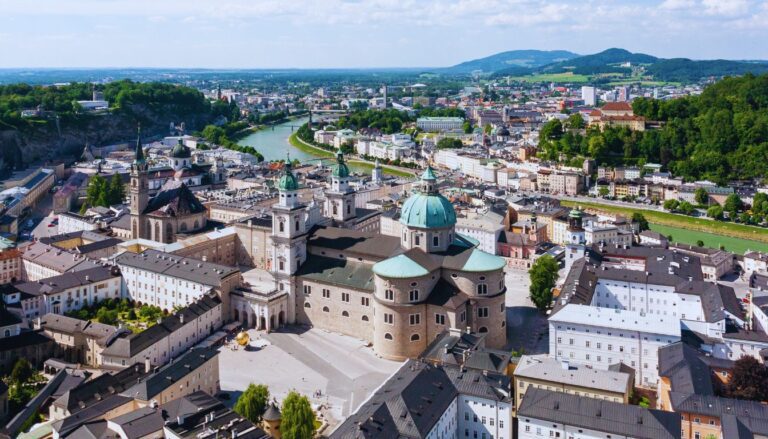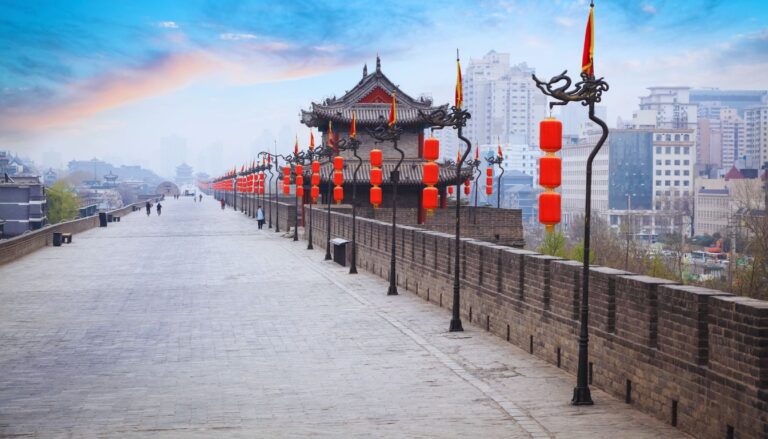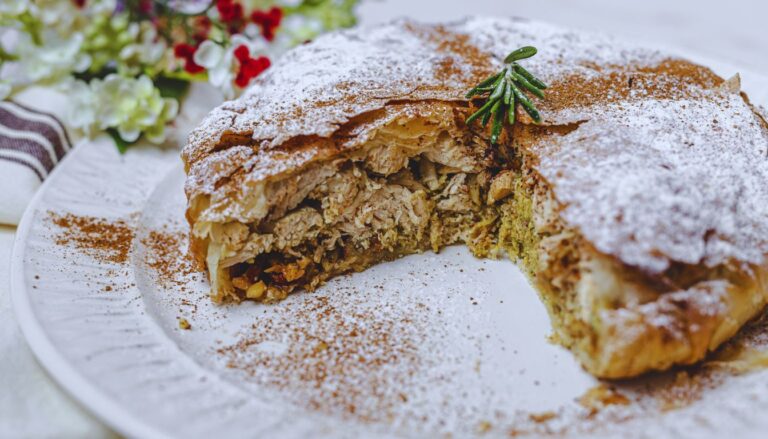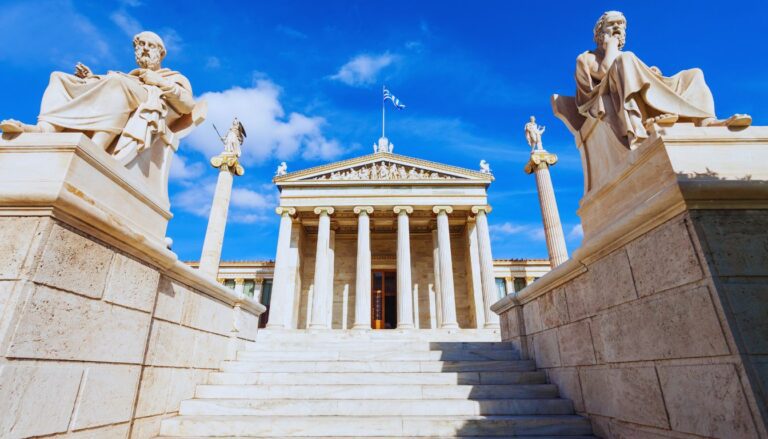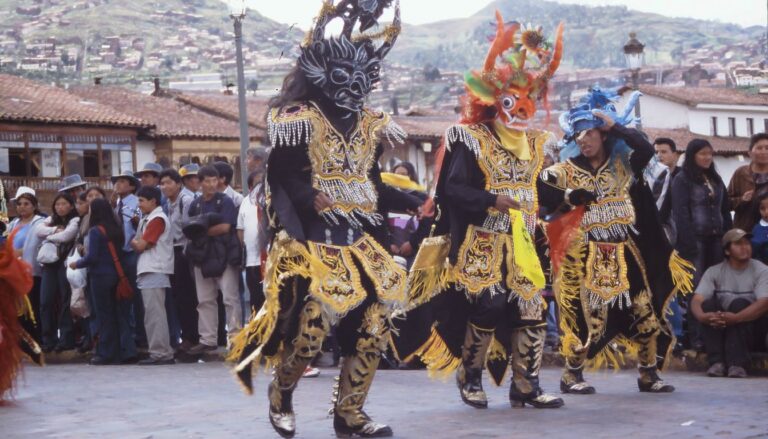Kairouan, Tunisia
Step into the spiritual heart of North Africa, where the call to prayer echoes across ancient walls and centuries of Islamic heritage come alive in every cobblestone. Kairouan, Tunisia’s holy city and UNESCO World Heritage site, stands as a testament to over 1,300 years of religious devotion and cultural richness.
This guide reveals local secrets and cultural treasures, transforming your visit into a memorable journey.
Table of Contents
Best Places to Visit
Kairouan’s sacred geography unfolds through its distinct areas:
- The Great Mosque Area: Heart of Islamic heritage
- Ancient Medina: Maze of authentic craft markets
- Bir Barouta: Historic water source with legendary connections
- Aghlabid Basins: Ancient water reservoirs
- Modern City: Where traditional and contemporary Tunisia meet
Must-Visit Cultural Landmarks
- Great Mosque of Uqba: One of Islam’s most important mosques
- Mosque of the Three Doors: Featuring unique architectural facade
- Sidi Sahab Mausoleum: Known as the Barber’s Mosque
- Medina Gates: Ancient entrances to the walled city
- Aghlabid Pools: 9th-century hydraulic engineering marvel
- Governor’s House: Ottoman-period architecture
Cultural Insights & Traditions
Kairouan’s culture centers around several key elements:
- Islamic Heritage: Fourth holiest city in Islam
- Carpet Weaving: Traditional craft passed through generations
- Metalwork: Intricate brass and copper craftsmanship
- Culinary Traditions: Famous for traditional sweets
- Religious Festivals: Islamic celebrations throughout the year
- Traditional Medicine: Ancient healing practices
Top Cultural Experiences
- Visit a traditional carpet workshop
- Learn about Islamic calligraphy
- Experience traditional sweet making
- Join a medina crafts tour
- Participate in a pottery workshop
- Explore traditional architecture photography
Best Time to Visit
- Spring (March-May): Ideal temperatures, cultural festivals
- Fall (September-November): Pleasant weather, fewer tourists
- Winter (December-February): Cool but comfortable
- Avoid summer (June-August) due to extreme heat
- Consider Islamic calendar for special events
How to Get Around
- Walking: Best for medina exploration
- Taxis: Available for longer distances
- Local Guides: Recommended for cultural context
- Horse-drawn Carriages: Traditional medina transport
- Private Drivers: Available for day trips
Where to Stay
- Near Great Mosque: Heart of historic district
- Medina: Traditional guesthouses
- Modern City: Contemporary hotels
- Restored Mansions: Heritage accommodations
- Family Homestays: Authentic local experience
Best Places to Book Your Trip
Planning your dream trip is easy with trusted travel platforms. To secure the best deals on flights, accommodations, and tours, check out:
- Booking.com: Offers a wide range of hotels, apartments, and hostels to suit every budget.
- GetYourGuide: Book unforgettable experiences like guided tours, cooking classes, and fast-track passes.
- Expedia: A great platform for bundling flights, hotels, and car rentals for a seamless booking experience.
- Skyscanner: Perfect for finding the best deals on flights.
Pro Tips for Visitors
- Dress modestly out of respect for local customs
- Learn basic Arabic greetings – locals appreciate the effort
- Hire a certified guide for deeper cultural understanding
- Visit the Great Mosque early morning for best photos
- Respect prayer times when visiting religious sites
- Bring comfortable walking shoes for medina exploration
- Carry cash for market purchases
- Stay hydrated, especially during summer months
- Be prepared to remove shoes at religious sites
- Ask permission before photographing people
- Consider local customs during Ramadan
- Book heritage hotels in advance during peak seasons
Let Kairouan’s sacred atmosphere guide your journey through its timeless streets. Whether you’re admiring the architectural mastery of ancient mosques, learning traditional carpet-weaving techniques, or discovering the flavors of local cuisine, each moment reveals another layer of this remarkable city’s spiritual and cultural heritage.
Traditional Makroudh of Kairouan: A Local’s Guide to Authenticity

